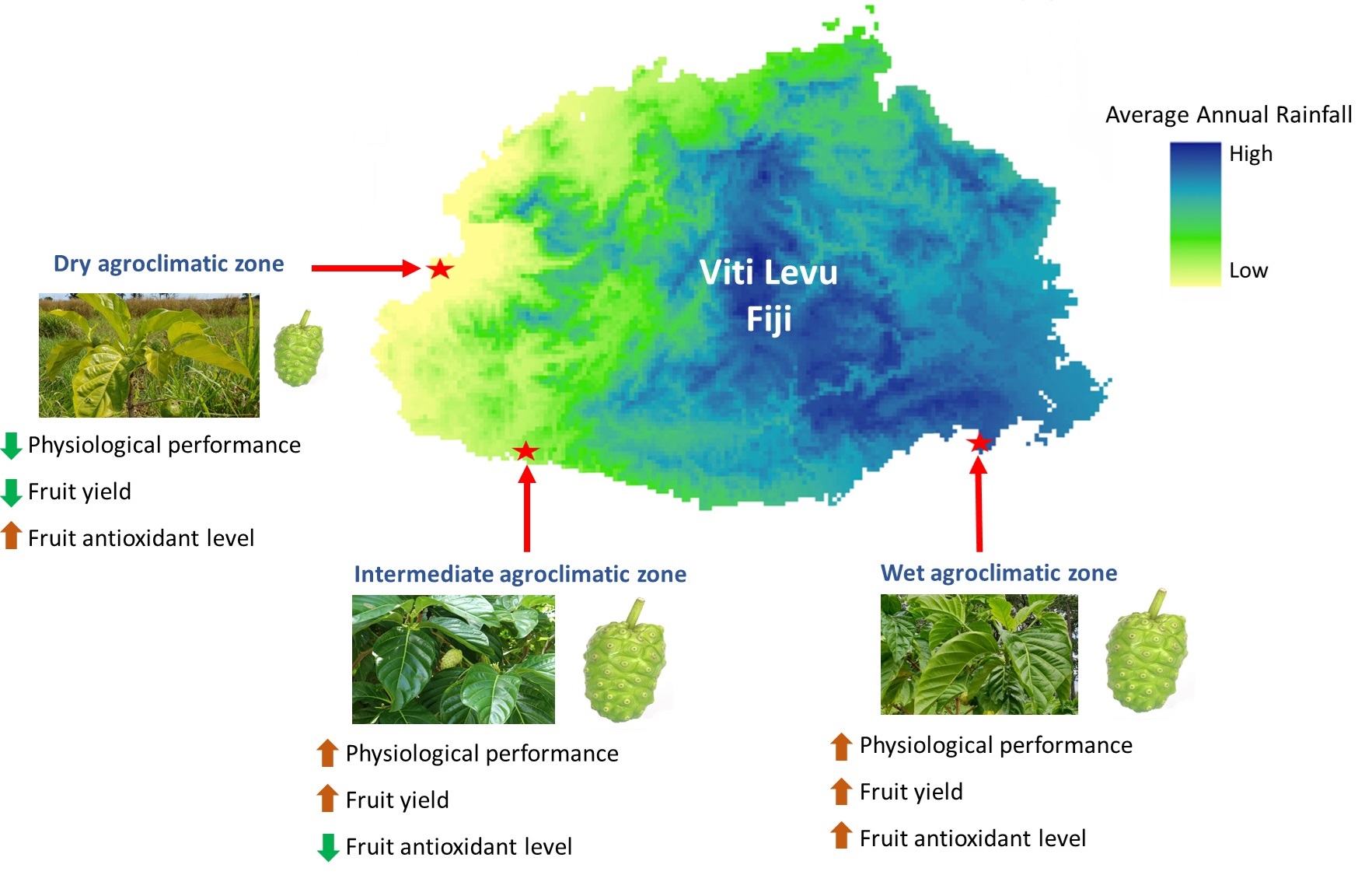Physiological performance and fruit quality of noni (Morinda citrifolia L.) cultivated in different agro-climatic zones of Fiji

Published 2024-07-01
Keywords
- Antioxidant properties,
- climate,
- fruit production,
- Morinda citrifolia,
- photosynthesis
How to Cite
Copyright (c) 2024 Reema Prakash, Anjeela Jokhan, Romila Gopalan, Ranjila Singh, Abhineshwar Prasad

This work is licensed under a Creative Commons Attribution 4.0 International License.
Abstract
Noni (Morinda citrifolia) fruit juice is widely used as a strong antioxidant nutritional supplement. With its demand for supplementary products globally, commercial noni farming is now increasing in the Pacific Islands. Information on its growth performance and fruit quality under variable climatic condition is limited. This study aimed to establish the climatic requirements and identify the agro-climatic zone in Fiji that provides for increased antioxidant levels in fruits in addition to optimal plant growth and physiological performance. The study investigated plant growth, photosynthetic performance, fruit yield and antioxidant properties of plants that were cultivated under rain fed conditions in the dry, wet and intermediate agro-climatic zones in Fiji Islands. The physiological performance was significantly influenced by the soil moisture, sunshine hours and soil nutrients. Physiological performance including fruit yields were the highest in the intermediate zone which was characterized by a moderate rainfall and fairly good soil properties while it was lowest in the dry zone. Highest fruit antioxidant properties occurred in the dry zone followed by wet zone. The study implies that under cultivation, moderate abiotic stress can enhance the antioxidant properties of noni.




